

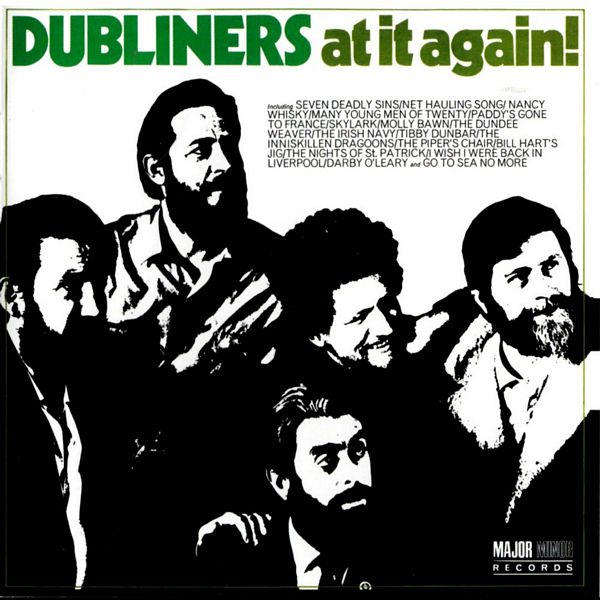 |
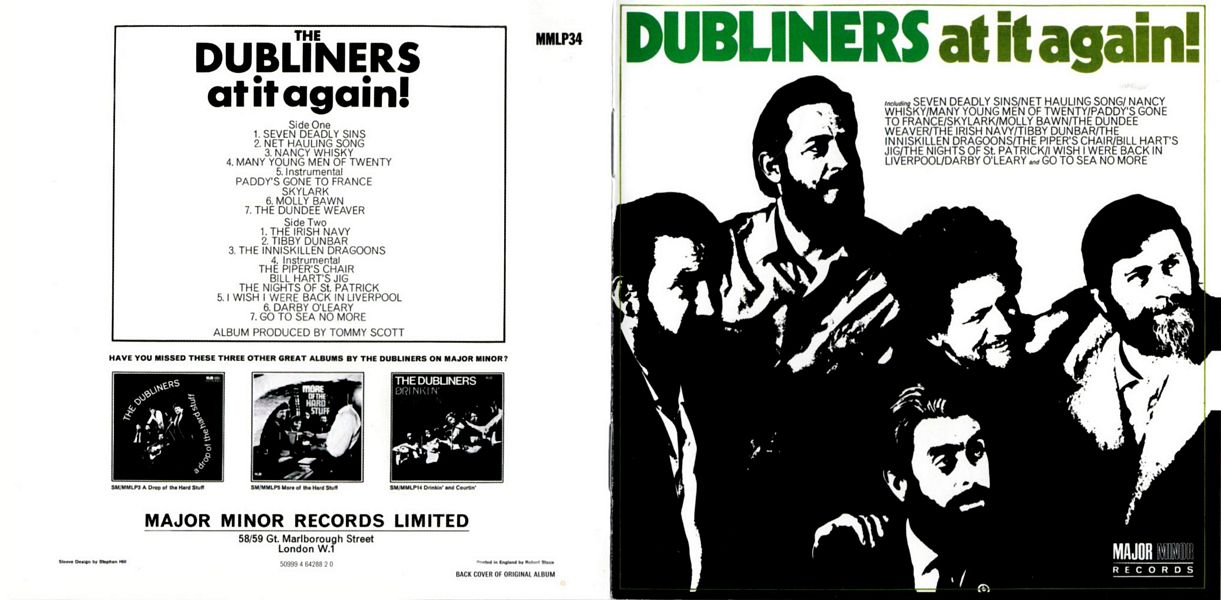
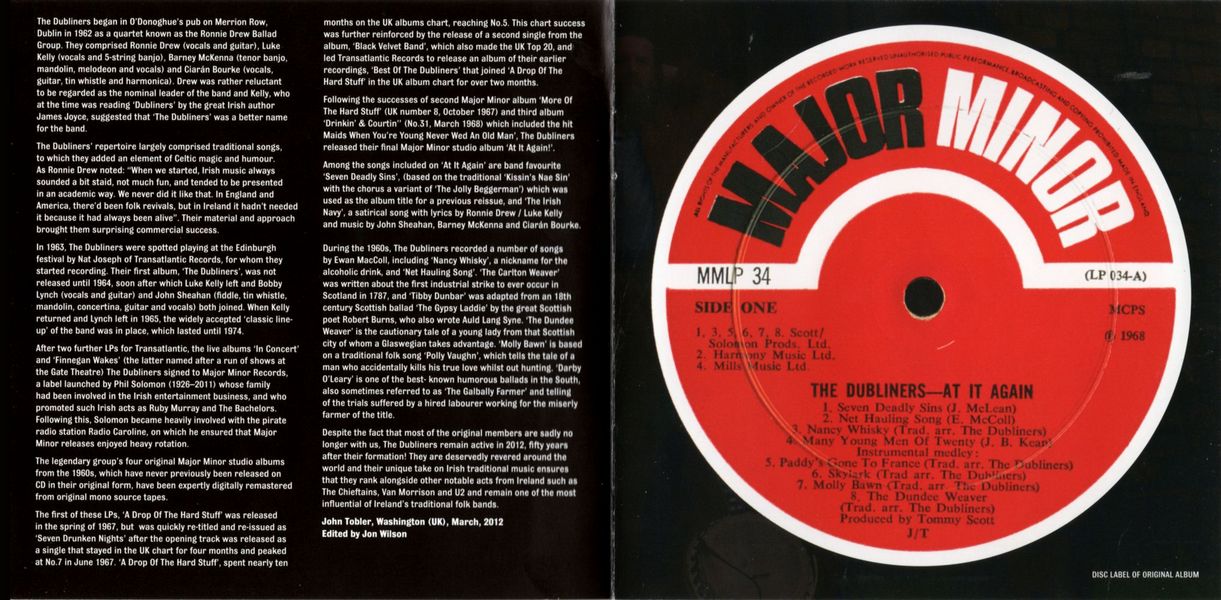 |
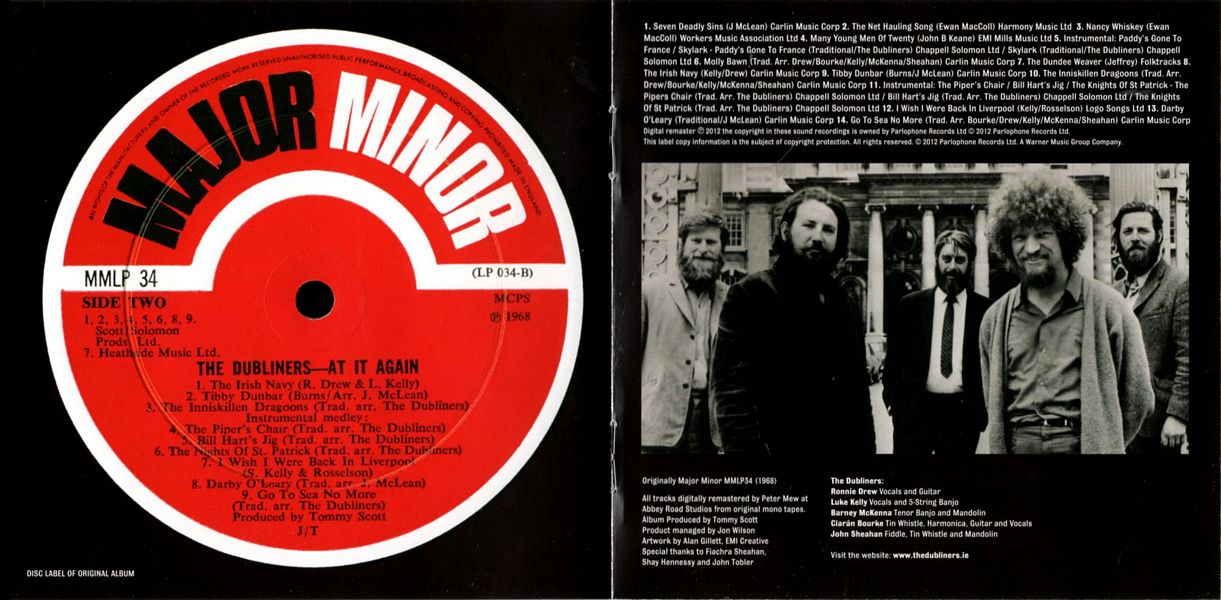
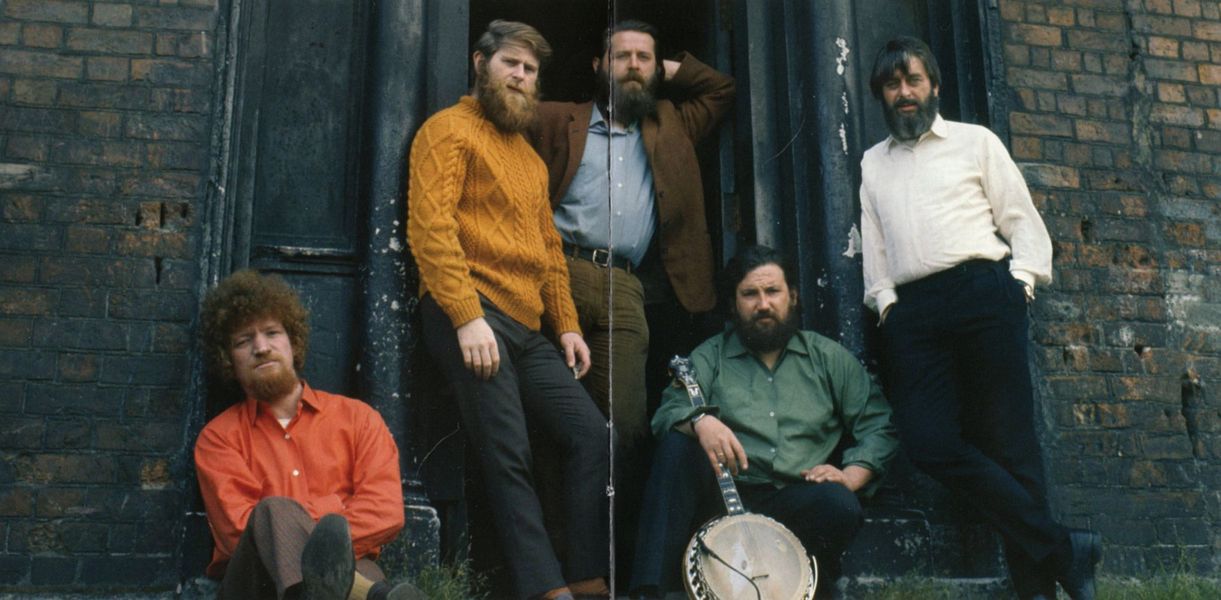 |
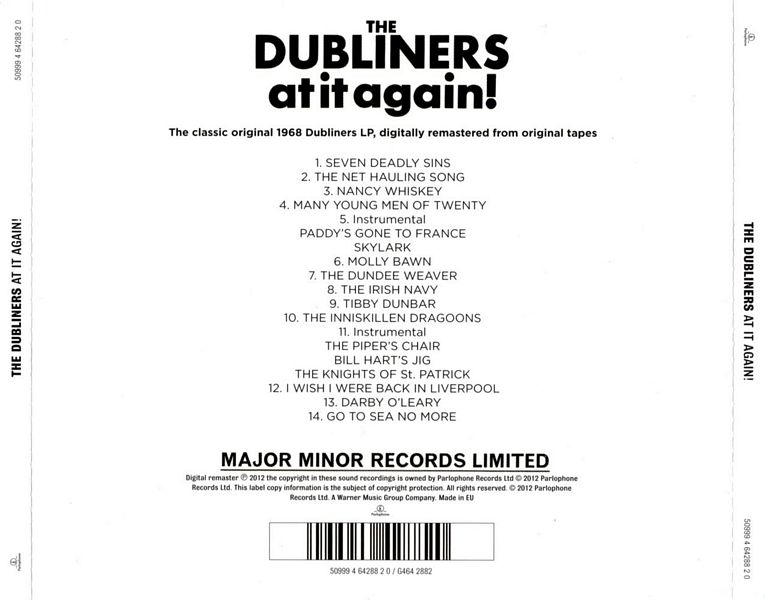
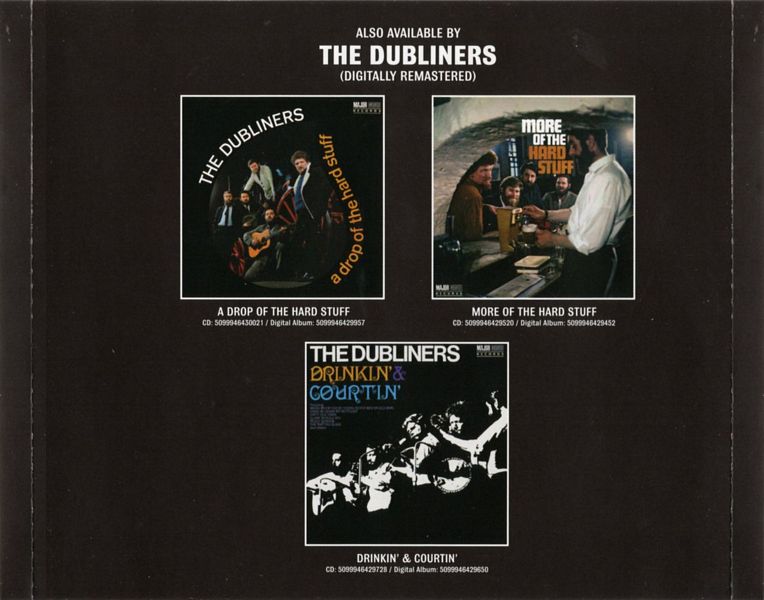
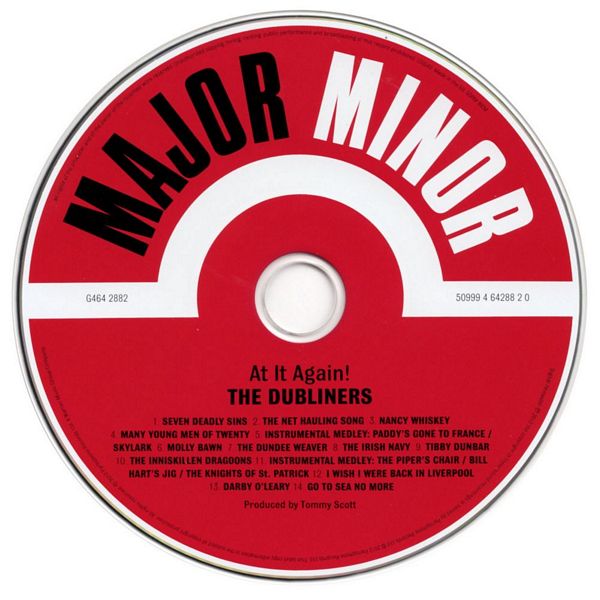 |
Sleeve Notes (2012)
The Dubliners began in O'Donoghue's pub on Merrion Row, Dublin in 1962 as a quartet known as the Ronnie Drew Ballad Group. They comprised Ronnie Drew (vocals and guitar), Luke Kelly (vocals and 5-string banjo), Barney McKenna (tenor banjo, mandolin, melodeon and vocals) and Ciarán Bourke (vocals, guitar, tin whistle and harmonica). Drew was rather reluctant to be regarded as the nominal leader of the band and Kelly, who at the time was reading 'Dubliners' by the great Irish author James Joyce, suggested that 'The Dubliners' was a better name for the band.
The Dubliners' repertoire largely comprised traditional songs, to which they added an element of Celtic magic and humour. As Ronnie Drew noted: "When we started, Irish music always sounded a bit staid, not much fun, and tended to be presented in an academic way. We never did it like that. In England and America, there'd been folk revivals, but in Ireland it hadn't needed it because it had always been alive". Their material and approach brought them surprising commercial success.
In 1963, The Dubliners were spotted playing at the Edinburgh festival by Nat Joseph of Transatlantic Records, for whom they started recording. Their first album, 'The Dubliners', was not released until 1964, soon after which Luke Kelly left and Bobby Lynch (vocals and guitar) and John Sheahan (fiddle, tin whistle, mandolin, concertina, guitar and vocals) both joined. When Kelly returned and Lynch left in 1965, the widely accepted 'classic lineup' of the band was in place, which lasted until 1974.
After two further LPs for Transatlantic, the live albums 'In Concert' and 'Finnegan Wakes' (the latter named after a run of shows at the Gate Theatre) The Dubliners signed to Major Minor Records, a label launched by Phil Solomon (1926-2011) whose family had been involved in the Irish entertainment business, and who promoted such Irish acts as Ruby Murray and The Bachelors. Following this, Solomon became heavily involved with the pirate radio station Radio Caroline, on which he ensured that Major Minor releases enjoyed heavy rotation.
The legendary group's four original Major Minor studio albums from the 1960s, which have never previously been released on CD in their original form, have been expertly digitally remastered from original mono source tapes.
The first of these LPs, A Drop Of The Hard Stuff' was released in the spring of 1967, but was quickly re-titled and re-issued as 'Seven Drunken Nights' after the opening track was released as a single that stayed in the UK chart for four months and peaked at No. 7 in June 1967. A Drop Of The Hard Stuff, spent nearly ten months on the UK albums chart, reaching No. 5. This chart success was further reinforced by the release of a second single from the album, 'Black Velvet Band', which also made the UK Top 20, and led Transatlantic Records to release an album of their earlier recordings, 'Best Of The Dubliners' that joined 'A Drop Of The Hard Stuff in the UK album chart for over two months.
Following the successes of second Major Minor album More Of The Hard Stuff (UK number 8, October 1967) and third album 'Drinkin' & Courtin'' (No. 31, March 1968) which included the hit 'Maids When You're Young Never Wed An Old Man', The Dubliners released their final Major Minor studio album 'At It Again!'.
Among the songs included on 'At It Again' are band favourite 'Seven Deadly Sins', (based on the traditional 'Kissin's Nae Sin' with the chorus a variant of 'The Jolly Beggerman') which was used as the album title for a previous reissue, and 'The Irish Navy', a satirical song with lyrics by Ronnie Drew & Luke Kelly and music by John Sheahan, Barney McKenna and Ciarán Bourke
During the 1960s, The Dubliners recorded a number of songs by Ewan MacColl, including 'Nancy Whisky', a nickname for the alcoholic drink, and 'Net Hauling Song'. 'The Carlton Weaver' was written about the first industrial strike to ever occur In Scotland in 1787, and 'Tibby Dunbar' was adapted from an 18th century Scottish ballad 'The Gypsy Laddie' by the great Scottish poet Robert Burns, who also wrote Auld Lang Syne. 'The Dundee Weaver' is the cautionary tale of a young lady from that Scottish city of whom a Glaswegian takes advantage. 'Molly Bawn' is based on a traditional folk song Polly Vaughn', which tells the tale of a man who accidentally kills his true love whilst out hunting. 'Darby O'Leary' is one of the best- known humorous ballads in the South, also sometimes referred to as 'The Galbally Farmer' and telling of the trials suffered by a hired labourer working for the miserly farmer of the title.
Despite the fact that most of the original members are sadly no longer with us, The Dubliners remain active in 2012, fifty years after their formation! They are deservedly revered around the world and their unique take on Irish traditional music ensures that they rank alongside other notable acts from Ireland such as The Chieftains, Van Morrison and U2 and remain one of the most influential of Ireland's traditional folk bands.
John Tobler, Washington, UK), March, 2012
Edited by Jon Wilson